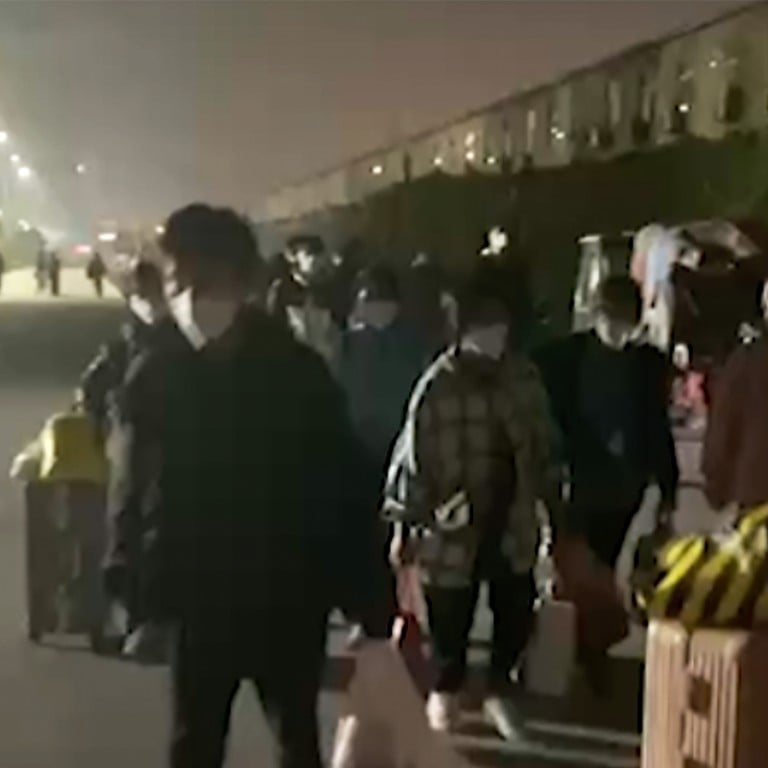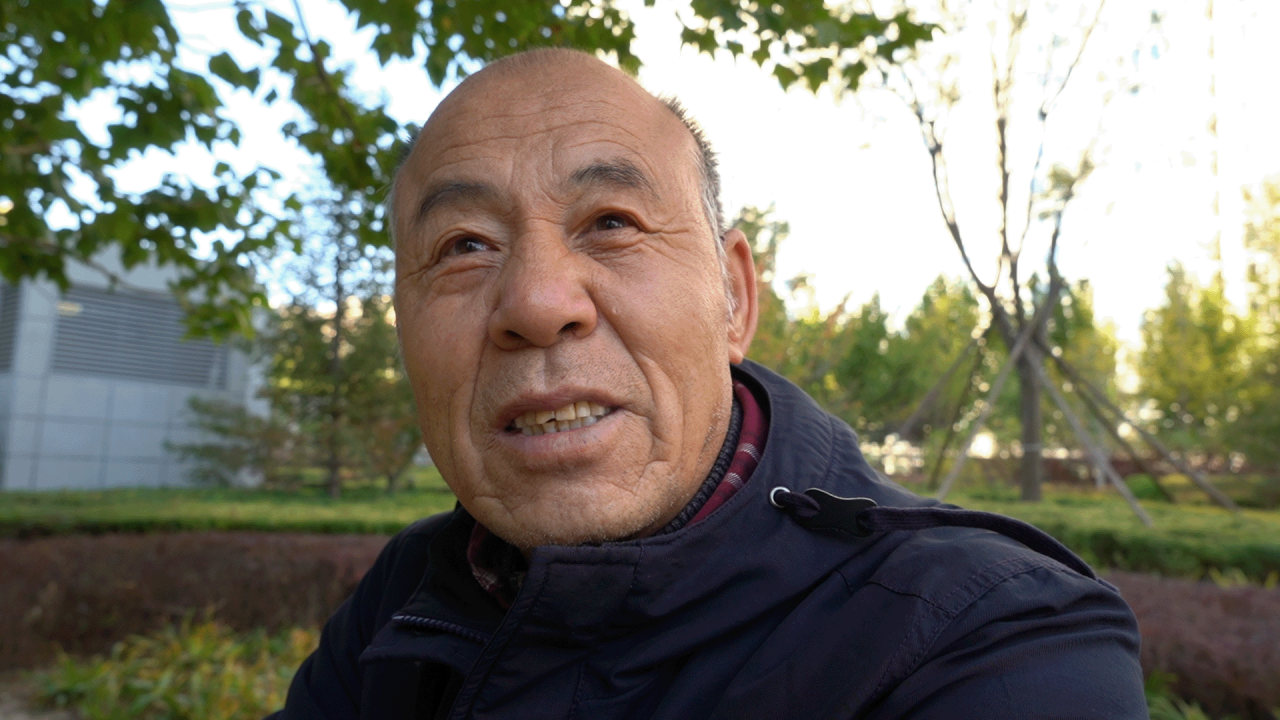
Coronavirus: iPhone factory exodus shows how China’s Covid narrative still strikes fear in public
- Foxconn employees said they would rather trek long distances than face the risk of what would likely be a minor infection
- Analysts say the Chinese government has portrayed the virus as a monster, while ignoring misinformation put out on social media
In some cases they were willing to walk over 100km (60 miles) to get back home rather than stay at a factory in central China with a Covid-19 outbreak.
They climbed fences and carried luggage but little food to walk along a highway or country roads. They said they were escaping unhygienic living conditions that exposed them to infection.
The exodus of workers from the Foxconn Technology Group plant, the world’s largest iPhone assembly line, in Zhengzhou in the past few days reflects the fear that ordinary Chinese still hold for the disease almost three years into the Covid-19 pandemic.
“[The authorities] created fear and portrayed [the virus] as a monster, something which is very scary to the general public. For three years they have not corrected the wrong image of these worries, that’s the root cause of these problems,” said Jin Dongyan, a virologist at the University of Hong Kong. “If one day China heads toward reopening, this has to be changed.”
Jin said the stringent controls imposed in China created a stigma not only for people suffering from Covid-19 but also for people who might bring viruses in, making them an enemy in the community.
State media still emphasises the effects of the virus on vulnerable groups, including children and the elderly, and social media is filled with posts describing post-Covid symptoms.
However, Jin said the death of many elderly could be avoided with full vaccinations and antiviral drugs.
US-based biomedical researcher Yebin Zhou, who writes about Covid-19 science on Chinese social media, said it was irrational that people had left the Foxconn factory because of small-scale infections, but it was understandable considering that outbreak management was chaotic at the factory.
“The fear among the public of Covid stems partly from the virus itself, partly from restrictions they have to face in an outbreak,” he wrote in a post.
Zhou said his articles about reopening policies in other countries were often deleted by censors while others’ rumour posts about the side effects of vaccines were shared numerous times, he said.
The exodus of Foxconn workers has sparked heated debate online about how to handle outbreaks and whether suffering while trying to escape the virus is worth it to avoid what may now be a minor infection in most cases.
Some netizens shared a notice by the medical team at the First Affiliated Hospital of Henan TCM University, which runs a quarantine centre at Foxconn. The notice reminded patients not to panic because the virus would not cause severe illness, even though it was more transmissible than previous iterations.
“Shouldn’t this be broadcast on the state broadcaster again and again for the whole year to hammer home the message?” one Weibo user asked.
While the scale or seriousness of the outbreak inside the plant is not known, official data from the province suggests it is a small-scale outbreak.
On Monday, Zhengzhou reported five local confirmed cases and 35 asymptomatic infections.
However, local governments have reacted strongly and sent task forces from district and provincial-level governments to the plant to ensure it “performs its duty properly” so production order can be restored, according to a government statement.
“Epidemic prevention and control measures will be tightened, awareness strengthened to overcome fatigue and relaxed mentality … and build a solid line of defence for Covid-19 control,” the statement said.
Those governments had also sent 200 people to carry out testing and a further 400 for disinfection and cleaning duties in the plant, dormitories and public spaces, it added.

.jpg?itok=H5_PTCSf&v=1700020945)

